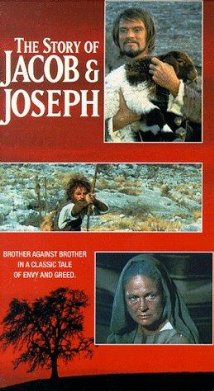| The Story of Jacob and Joseph | |
|---|---|
 | |
| Genre | Biblical fiction |
| Based on | Book of Genesis |
| Written by | Ernest Kinoy |
| Directed by | Michael Cacoyannis |
| Starring | Keith Michell Tony Lo Bianco Colleen Dewhurst Herschel Bernardi Harry Andrews Julian Glover |
| Narrated by | Alan Bates |
| Theme music composer | Mikis Theodorakis |
| Country of origin | United States |
| Original languages | English Greek |
| Production | |
| Producers | Mildred Freed Alberg Rony Yacov |
| Cinematography | Ted Moore Austin Dempster |
| Editor | Kevin Connor |
| Running time | 110 minutes |
| Production companies | Mildred Theatrical Productions Screen Gems |
| Original release | |
| Network | ABC |
| Release | April 7, 1974 |
The Story of Jacob and Joseph is a 1974 American Biblical drama television film directed by Michael Cacoyannis, based on the Biblical Book of Genesis with a screenplay written by Ernest Kinoy. It stars Keith Michell as Jacob, Tony Lo Bianco as Joseph, Colleen Dewhurst as Rebekah, Herschel Bernardi as Laban, Harry Andrews as Isaac, and Julian Glover as Esau.
Contents
Filmed on location in Israel, The Story of Jacob and Joseph originally aired in the United States on the American Broadcasting Company on April 7, 1974. It was the fifth-highest viewed prime time program for the week. [1] The Biblical narrative was continued two years later with The Story of David (1976), also produced for ABC-TV and involving many of the same cast and crew.